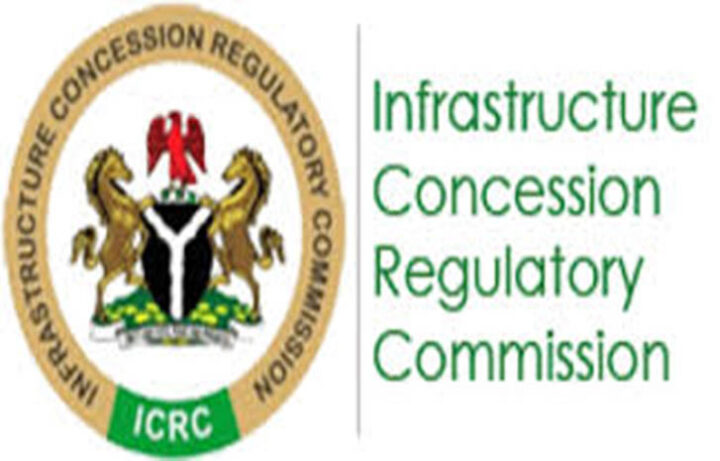The Infrastructure Concession Regulatory Commission (ICRC) has disclosed that Nigeria requires an estimated $100 billion in annual investment over the next two decades to bridge its $2.3 trillion infrastructure deficit, emphasizing the urgent need for stronger public-private partnerships (PPPs) to drive sustainable development across key sectors.
The revelation was made by the Director-General of ICRC, Michael Ohiani, during a stakeholders’ forum in Abuja, where he underscored that Nigeria’s current infrastructure funding levels are insufficient to meet the nation’s growing population and economic demands. He stated that closing the infrastructure gap is essential to achieving the country’s development goals and unlocking its full economic potential.

According to Ohiani, the existing infrastructure deficit affects nearly all sectors, including power, transportation, water resources, health, and education. He noted that while the government continues to invest in major projects, the scale of Nigeria’s infrastructure needs far exceeds what public funds alone can provide.
“Nigeria’s infrastructure gap currently stands at about $2.3 trillion, and bridging this requires an annual investment of roughly $100 billion over the next 20 years. This cannot be achieved through government resources alone. We need strong collaboration with the private sector through well-structured PPP models,” Ohiani said.
He explained that the ICRC has been at the forefront of promoting PPP frameworks that attract private capital into the development and maintenance of critical infrastructure. These partnerships, he said, are essential for ensuring long-term efficiency, innovation, and sustainability in project delivery.
The ICRC boss added that the Commission had already approved over 103 PPP projects across various sectors, with several at advanced stages of execution. “We have witnessed notable progress in areas such as transportation, housing, and ICT infrastructure. However, there is still much more to be done to close the wide infrastructure gap,” he noted.
Ohiani emphasized that achieving Nigeria’s development aspirations, including the National Integrated Infrastructure Master Plan (NIIMP), depends largely on mobilizing both domestic and foreign investments. He called for enhanced collaboration between the government, development partners, and the private sector to develop innovative financing mechanisms that will attract long-term capital.
He said the Commission was working closely with the Federal Ministry of Finance, the Central Bank of Nigeria (CBN), and international financial institutions to create incentives and guarantee frameworks that make infrastructure investments more attractive to private players.
“The government alone cannot shoulder the financial burden of developing all our roads, railways, ports, power plants, and healthcare facilities. We must create a conducive environment for investors through transparency, consistency, and effective regulation,” Ohiani said.
He further revealed that the ICRC has introduced reforms to strengthen the legal and regulatory framework governing PPPs, including risk-sharing mechanisms and project viability assessments, to ensure that investments deliver value for money.
Speaking at the forum, Minister of Finance and Coordinating Minister of the Economy, Wale Edun, reaffirmed the government’s commitment to partnering with the private sector to finance critical infrastructure. He said that infrastructure development remains central to President Bola Tinubu’s economic agenda, which prioritizes job creation, industrial expansion, and improved living standards.
Edun explained that the government is creating fiscal and policy reforms to attract investors, adding that the proposed Infrastructure Support Fund will serve as a vehicle to channel private capital into strategic national projects.
Economic experts at the event also highlighted that Nigeria’s infrastructure challenges have been a major constraint to growth, costing the economy an estimated 4 percent of GDP annually. They urged the government to adopt efficient project management practices, strengthen accountability systems, and ensure that infrastructure investments align with long-term national priorities.
Development economist Dr. Chika Mordi said, “Without sufficient investment in infrastructure, Nigeria will continue to face challenges in industrial productivity, logistics efficiency, and energy access. The $100 billion annual investment target is ambitious but achievable if private sector confidence is restored through credible policies.”
The ICRC boss concluded by stating that the Commission will continue to champion reforms that ensure transparency, accountability, and competitiveness in infrastructure procurement. He noted that Nigeria’s future economic growth and global competitiveness depend on how effectively it closes its infrastructure gap.
“Our goal is to create a framework where infrastructure delivery is sustainable, cost-effective, and impactful. Through collaboration and innovation, we can transform Nigeria into a country with world-class infrastructure that supports inclusive growth,” Ohiani said.
With the $2.3 trillion infrastructure deficit looming large, experts agree that mobilizing consistent annual investments of at least $100 billion remains Nigeria’s best path toward building modern, resilient, and globally competitive infrastructure for the future.
Support InfoStride News' Credible Journalism: Only credible journalism can guarantee a fair, accountable and transparent society, including democracy and government. It involves a lot of efforts and money. We need your support. Click here to Donate
